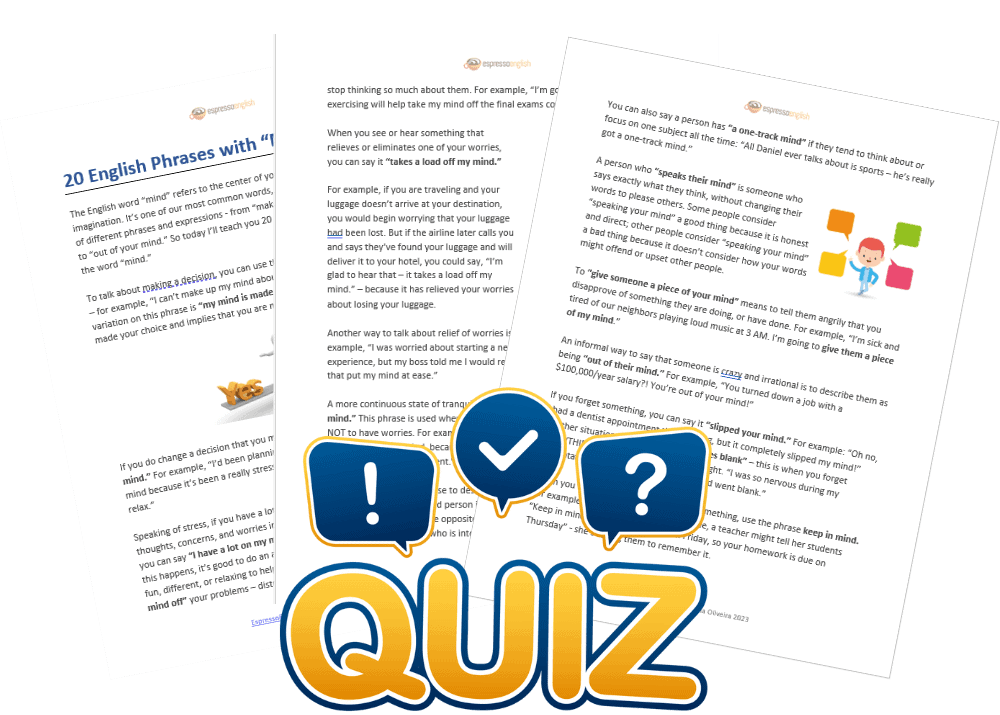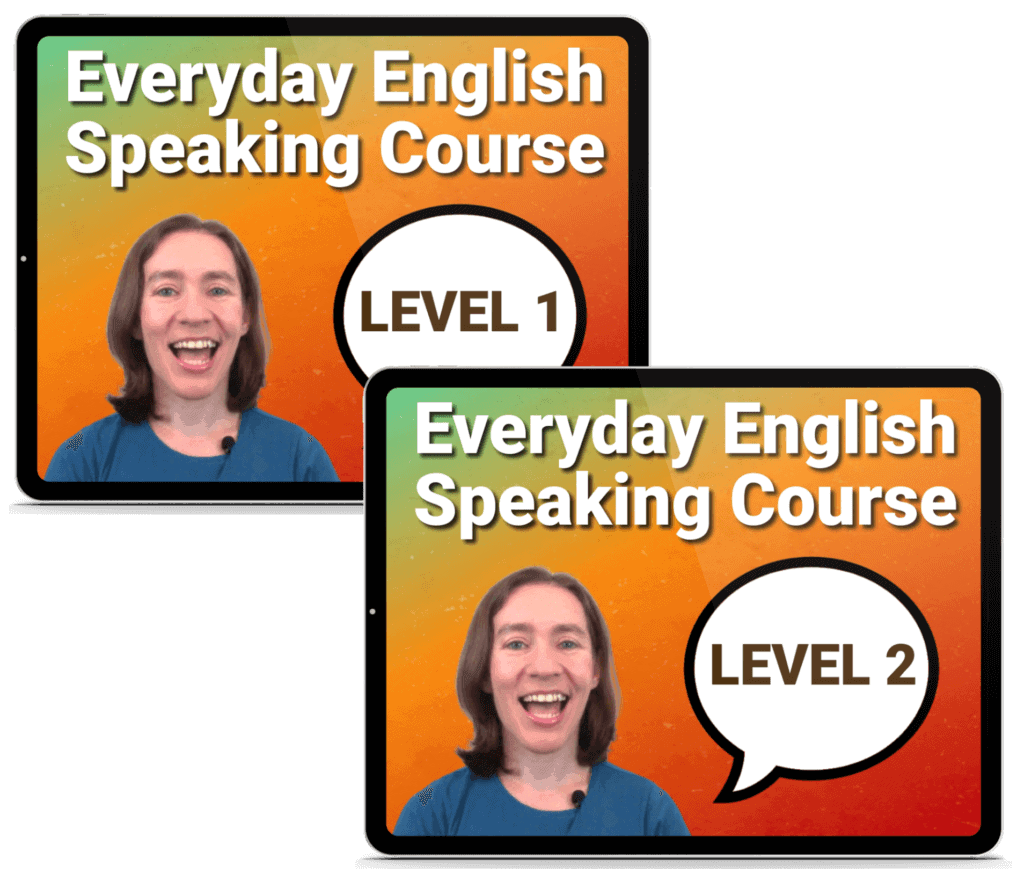
The English word “mind” refers to the center of your thoughts, memory, and imagination. In this lesson, you’ll learn 20 common English phrases using the word “mind.”
To talk about making a decision, you can use the phrase “make up my mind” – for example, “I can’t make up my mind about which movie to see tonight.” A variation on this phrase is “my mind is made up” – this means you have already made your choice and implies that you are not open to changing your decision.

If you do change a decision that you made previously, use the phrase “change my mind.” For example, “I’d been planning to travel this weekend, but I changed my mind because it’s been a really stressful week – so I’m going to stay home and relax.”
Speaking of stress, if you have a lot of thoughts, concerns, and worries in your head, you can say “I have a lot on my mind.” When this happens, it’s good to do an activity that is fun, different, or relaxing to help “take your mind off” your problems. For example, “I’m going to the gym – exercising will help take my mind off the final exams coming up.”

When you see or hear something that relieves or eliminates one of your worries, you can say it “takes a load off my mind.” For example, if you are traveling and your luggage doesn’t arrive at your destination, you would begin worrying that your luggage had been lost. But if the airline later calls you and says they’ve found your luggage and will deliver it to your hotel, you could say, “I’m glad to hear that – it takes a load off my mind.” – because it has relieved your worries about losing your luggage.
Another way to talk about relief of worries is “put my mind at ease” – for example, “I was worried about starting a new job without any previous experience, but my boss told me I would receive training during my first week – that put my mind at ease.”
A more continuous state of tranquility is called “peace of mind.” This phrase is used when something helps you NOT to have worries. For example, “Having car insurance gives me peace of mind, because I know the costs will be covered if I get in an accident.”

Two expressions you can use to describe people are “open-minded” and “close-minded” – an open-minded person is receptive to new and different ideas, and a close-minded person is the opposite – a person who doesn’t want to accept or consider new ideas, and who is intolerant of different beliefs and opinions.
You can also say a person has “a one-track mind” if they tend to think about or focus on one subject all the time: “All Daniel ever talks about is sports – he’s really got a one-track mind.”
A person who “speaks their mind” is someone who says exactly what they think, without changing their words to please others. Some people consider “speaking your mind” a good thing because it is honest and direct; other people consider “speaking your mind” a bad thing because it doesn’t consider how your words might offend or upset other people.

To “give someone a piece of your mind” means to tell them angrily that you disapprove of something they are doing, or have done. For example, “I’m sick and tired of our neighbors playing loud music at 3 AM. I’m going to give them a piece of my mind.”
An informal way to say that someone is crazy and irrational is to describe them as being “out of their mind.” For example, “You turned down a job with a $100,000/year salary?! You’re out of your mind!”
If you forget something, you can say it “slipped your mind.” For example: “Oh no, I had a dentist appointment this morning, but it completely slipped my mind!” Another situation is when your “mind goes blank” – this is when you forget EVERYTHING and can’t form a single thought. “I was so nervous during my presentation; as soon as I started, my mind went blank.”
All of the phrases you’ve learned so far use the word “mind” as a noun – but it can also be a verb, meaning to pay attention to or to care about. If you want to check if an action is OK with another person, you can ask, “Do you mind if…?” for example, “Do you mind if I open the window?” means “Is it OK with you if I open the window?”
To answer this question and say it’s OK, the response would be “No, I don’t mind.” Again, remember that the phrase “I don’t mind” means “It’s OK with me.”
If a person is being “nosy” – that means interfering in your life or wanting to know very personal details – you can tell him or her “Mind your own business!” – this is a slightly rude way to say “Stop being so interested in my situation. Pay attention to your own life instead.”

Finally, a very common expression in English is “never mind” – this means “don’t worry about it” or “it’s not an important issue.” For example, if you’re trying to arrange a time to meet with your co-worker, but your schedules are in conflict, you could say “Never mind – I’ll just e-mail you the information.” This means “Forget about the meeting, it’s not important – I’ll e-mail you the information instead.”











